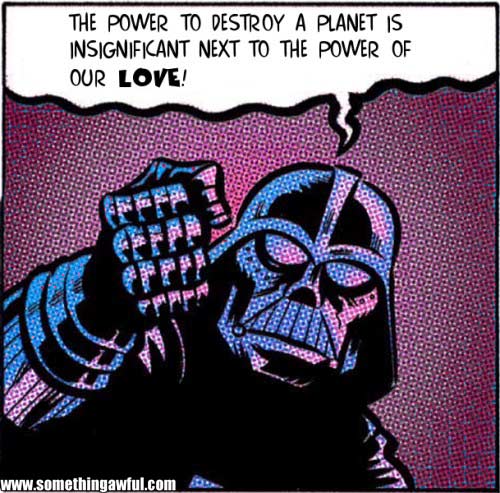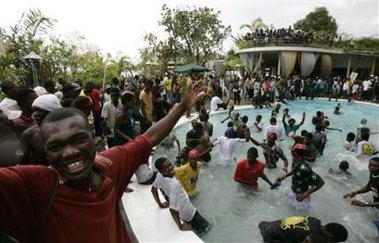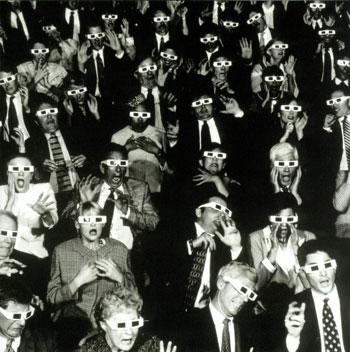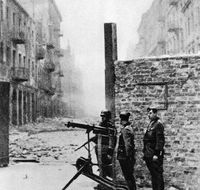AMY GOODMAN: We're going to go to an excerpt of that movie in just a minute, but I want to ask you about, right now, what journalists are facing in Iraq, just learning about the Al Arabiya reporter, thirty-year-old woman, her two crew, cameraman and soundman, who were just killed. Jill Carroll remains kidnapped.
DANNY SCHECHTER: Yeah. I mean, this is one of our demands also, to release not only kidnapped journalists, but journalists who have been jailed by U.S. authorities without any charges being filed against them, without any information being provided about why they're being arrested, no due process whatsoever. The International Federation of Journalists has raised this issue. It’s an issue that we all should take seriously, because it’s the fight for the right to know. It's the fight for information, and the journalists on the front line are in a very dangerous situation, more journalists dead in Iraq than in the entire Vietnam War, and this is something we have to take seriously. The woman who just died from Al Arabiya was an Al Jazeera correspondent before that, you know, a very brave reporter, very popular reporter, and for her to be killed, and we don’t know who’s doing this. You know, this is --
AMY GOODMAN: Atwar Bahjat, she was just heading into Samarra.
DANNY SCHECHTER: Yeah, we don’t know who’s behind all this. You know, there are hit squads --
AMY GOODMAN: And in that case, the reports were that those that killed her shouted out, “We want the correspondent, the correspondent!” She was Iraqi, herself, from a Sunni Shia family.
DANNY SCHECHTER: So, they basically want to keep us in the dark about what's happening in Iraq. That’s why the coverage has – you know, it’s become “when it bleeds it leads.” There's very little analysis and background and context being offered that helps people get a perspective about the complete failure of the U.S. intervention there.
JUAN GONZALEZ: And, Danny, as somebody who has been monitoring this coverage now on a regular basis, your sense, has there been any impact or change in any of the corporate media as a result of how badly the war has gone?
DANNY SCHECHTER: Well, I think because, as public opinion has shifted against the war, media doesn't want to alienate what customers it has left, so they want to try to appear to be a little bit more balanced. When people like John Murtha speak out, they can’t ignore it. So there has been some shift in the media coverage, but basically they have been locked into, you know, justifying this intervention. First, they justified the invasion. Now they're saying, “Well, withdrawal can't work.” You know, they're raising a blizzard of questions about why nothing can be done about the situation.
AMY GOODMAN: Danny, we want to turn for a few minutes to your film. It's called W.M.D.: Weapons of Mass Deception.
ARI FLEISCHER: The President will address the nation at 10:15.
PRES. GEORGE W. BUSH: My fellow citizens, at this hour, American and coalition forces are in the early stages of military operations to disarm Iraq, to free its people and to defend the world from grave danger.
ABC NEWS OFFICE, Amman, Jordan: The level of protection would be minimal, and if I were a news president or news executive right now, I would be pulling my people out.
DANNY SCHECHTER: When the war had finally begun, the networks began pulling their reporters out of Baghdad. Peter Arnett was in the Iraqi capital with a National Geographic documentary team. He decided to stay.
PETER ARNETT: Covering wars are a dangerous business. You can die, and those companies feel responsible for their people in harm's way. They sometimes order them out.
ABC NEWS OFFICE, Amman, Jordan: I think there is something to be said for staying. However, from a news executive standpoint, the risks are enormous.
PETER ARNETT: I sort of have a genetic tic that allows me to go into dangerous areas without too much concern.
ROBERT YOUHNG PELTON: The interesting thing was that the American military were trying to intimidate these journalists. They were saying, you know, “You are going to be a target” and everything, and the journalists were working overtime to say, “Look, we’re here. This is our coordinates. Don't fire,” and everybody knew that journalists were at these hotels. That’s why they were at these hotels. It was also known that if you are going to have shock and awe, you need somebody to record it. I mean, the one thing that they left out was that they needed the media to fight this war. The war was set up to be filmed and recorded by the media, so there was this bizarre, symbiotic relationship.
DAN RATHER: CBS’s David Martin at the Pentagon is following the planning and has the latest on a possible timeline.
DANNY SCHECHTER: To promote its war, the Pentagon made media management a priority. Their strategy was sophisticated, clever and almost always covert. Few media outlets exposed it. Most participated willingly for their own political and economic reasons. Pentagon strategy went beyond traditional P.R., using marketing strategies and perception management. Administration officials likened their war planning to a product rollout. It was all to guarantee there would be only one storyline in the media and in the minds of Americans: theirs. A Pentagon advisor told me it was intentional. They knew that TV networks prefer storytelling to sloganizing. Their storyline became a master narrative, defining Iraq as the problem and U.S. military intervention as the only solution. Traditionally, propaganda is targeted at the enemy. In this war, it was smoothly infiltrated into the news, aimed at American and global public opinion.
DONALD RUMSFELD: There are “known knowns,” there are things we know that we know. There are “known unknowns,” that is to say, there are things that we now know we don't know, but there are also “unknown unknowns.” There are things we do not know we don't know.
GEN. TOMMY FRANKS: This platform is not a platform for propaganda. This is a platform for truth.
DANNY SCHECHTER: In his war plan, Tommy Franks, the U.S. military commander, described the press, once known as the “fourth estate” as the “fourth front.” He knew that a supportive media was essential for victory, and he cultivated one.
GEN. TOMMY FRANKS: This will be a campaign unlike any other in history.
DANNY SCHECHTER: The Pentagon focused on winning the media war, leaking their plan to reporters they could trust.
GREG KELLY, FOX News Embed: We knew the plan, and I think the military benefited as far as positive coverage during the war because we knew what the plan was. So we reported that things basically were on plan, or we weren't worried when we got delayed two or three days, because we knew overall it was very successful.
DANNY SCHECHTER: Earlier, when the media pressed for access, Franks's team came up with the idea of embedding reporters, a former corporate P.R. professional turned Pentagon official ran the program.
VICTORIA CLARKE: One of the things we did -- it wasn't rocket science, but it was hard work -- we took the same kind of planning and training and discipline that you put into military operations and put it into this aspect of the military operations, and Rumsfeld and Myers, being enlightened guys, had included people like me in the war planning from the very earliest stages.
JOHN STAUBER: Victoria Clarke got major networks and news organizations to sign a 12-page contract agreeing to certain ground rules that actually kept the Department of Defense public affairs people in the driver's seat. And you got reporters in with these young, idealistic troops who really believed all the spin of what was going on -- we were going to liberate Iraq -- that the reporters would, overall, identify with the troops, and their reporting would be very positive.
BRITISH SOLDIER: When we get there, if any sort of incident happens, please keep calm and remain on the bus. We will deal with the situation, no matter what it is, as swiftly as possible.
-
DemocracyNow


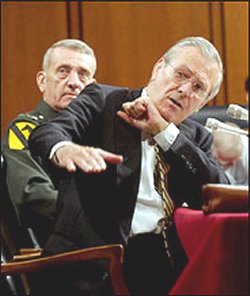


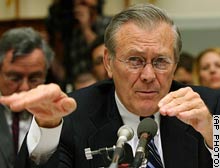






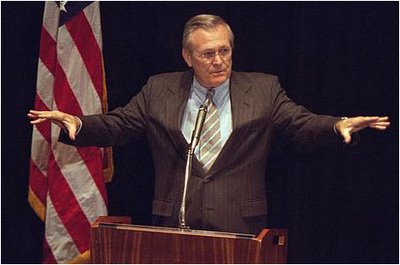



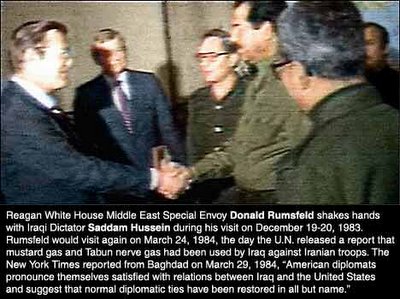


 These reports - which include brave eyewitness accounts of activity by US personnel at the mosque all night - naturally remain unmentioned by the BBC, which reports, with a straight face, that
These reports - which include brave eyewitness accounts of activity by US personnel at the mosque all night - naturally remain unmentioned by the BBC, which reports, with a straight face, that 

